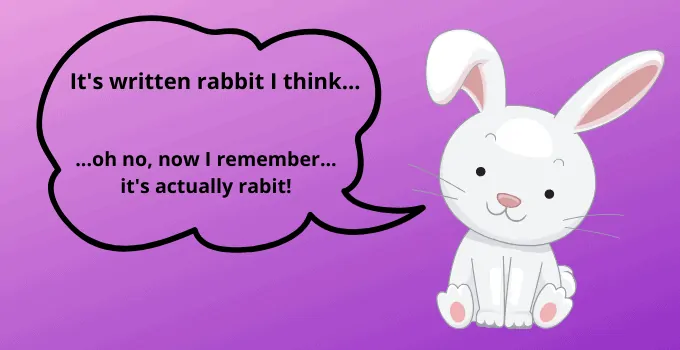Before getting started, it is worth noting that the German language is filled with words that are untranslatable to English.
A big reason for this is that German allows for the creation of compound words in a way that English just can’t keep up with.
In fact, most of the words on our list are compound words.
This ability to construct new words out of old ones makes German a very expressive language, one that lends English several unique expressions such as “Zeitgeist” and “Schadenfreude.”
However, you might be thinking to yourself that English is also known for creating new words by combining old ones.
Don’t people have “full-time” jobs, and sometimes have to work “over-time”? What about words like “website,” “baseball,” and “moonlight”?
Aren’t these all compound words?
Well, even though you would be correct in thinking that English is littered with compound words, the German language allows for a larger and frankly more creative combination of words, offering a wider palette for German speakers to choose from.
As you go through the following list, you will have a better understanding of why some German words have no direct parallel in the English language and need a wordy English translation to unpack.

1. Backpfeifengesicht
The simplest meaning of “Backpfeifengesicht” is a face in need of a fist.
In other words, when someone irritates you to such a degree that the mere sight of their face makes you want to either slap them or give them a good punch, you can say that they have a “Backpfeifengesicht.”
And, if we are being honest with each other, we all know a few people in our lives who have a “Backpfeifengesicht.”
Now, the word “Backpfeifengesicht” is made up of three words.
The first two are “Backe” and “Pfeife.” “Backe” means cheek in German, while “Pfeife” means whistle. But, when put together, “Backpfeife” means a slap across the cheek.
As for “Gesicht,” it means face.
So, in a literal sense, “Backpfeifengesicht” can be translated to “cheek-whistle-face.”
But, if you take into account that “Backpfeife” means “slap,” you get the literal translation “slap-face,” which is a smidgen closer to the actual meaning.
It’s only when you appreciate the ability of the German language to transcend literal meanings that you appreciate the full meaning of “Backpfeiefengesicht.”
That said, it should be noted that this German word is reserved for people who rub you the wrong way by being annoying, irksome, or just plain rude.
In other words, “Backpfeifengesicht” does not describe anything physical about a person or their face. Instead, it is a way of expressing how frustrating their personality is.
2. Fachidiot

Another compound word, “Fachidiot” is used to refer to people who are extremely specialized and knowledgeable in a certain field yet are complete morons in almost every other field, making them one-track specialists.
However, the term one-track specialist doesn’t quite capture the meaning of “Fachidiot.”
You see, a “Fachidiot” isn’t just ignorant of other subjects. They are also oblivious to how their actions affect others.
Put differently, this is someone who might be accomplished in their field but has neither social nor practical skills outside their chosen profession.
These are people who live in their own world and can only see problems from a single angle, that of their profession, making it difficult for them to adopt a holistic view of a situation or see the bigger picture.
Their narrow-mindedness makes it difficult for them to empathize with other people or to grow as human beings.
Linguistically, “Fachidiot” is composed of two words. “Fach” means subject, while “idiot” needs no translation. Therefore, “Fachidiot” literally translates to “subject idiot.”
3. Fernweh

This is a very poetic word. It is a compound word that literally translates to “far-woe,” where “Fern” means “Far” and “Weh” translates to “Woe.” But, Germans use it in a more figurative fashion to mean “longing for distant places.”
For instance, when you’re stuck at home during the winter and it’s snowing outside, sealing you indoors, “Fernweh” is used to describe that feeling you get of wishing that you were on a sunny beach far away from all the cold and gloom.
It’s sort of the opposite of “Heimweh,” which is another German word that means “homesick.”
If you’re looking for an even more poetic definition of the word, “Fernweh” can mean to “feel homesick for a place you’ve never visited before.”
It’s sort of the feeling travel agencies try to stir within you when they show you gorgeous pictures of distant places in the hopes of making you want to travel there.
Interestingly, you don’t have to feel “Fernweh” for real places. You might as well feel longing for fictional places, such as Tolkein’s Middle Earth or Rowling’s Hogwarts.
4. Kummerspeck

How many of you reading this article are guilty of emotional eating every once in a while, be it out of sadness or stress? C’mon, don’t be shy. It’s not like anyone can see you.
Well, in any case, whether you raised your hand or not, you might be surprised to learn that the Germans have a word for the extra weight you gain anytime you go binging. The word is “Kummerspeck.”
So, the next time your best friend gains a little weight after a break-up, you have the perfect word to describe the situation.
Better yet, you can also use “Kummerspeck” to talk about weight gained as a result of stress eating or eating out of boredom. What matters is that the main reason behind the binging is emotional.
Interestingly, “Kummerspeck” is another compound word that consists of two words. “Kummer” means “grief,” while “Speck” translates to bacon. Ergo, the literal translation of this word is “grief bacon.”
It’s funny to see how the usage of a word, figurative as it may be, can diverge from the literal meaning.
5. Torschlusspanik

Now, here is a word that comes to us from Medieval times.
“Torschlusspanik” is made up of three words. “Tor” means “gate,” “Schluss” means to close, and “Panik” is “to panic.” (That last word just goes to show how similar English and German can be sometimes, which should come as no surprise since both languages are descendants of Proto-Germanic.)
Anyway, when you put all three words together, you get “Torschlusspanik,” which means panic felt as the gates are closing.
You see, back in Medieval times, if a city was being attacked, it would shut its gates.
However, any peasants who were out on the fields were liable to be stuck outside if they weren’t able to make into the city in time before the gates shut.
Ergo, as soon as the peasants learned about an imminent attack, they would start panicking, fearing that they would have to spend the night outside of the city where they would be easy prey for thieves and attackers.
Hence, what these peasants felt was called “Torschlusspanik.”
However, nowadays, very few people have to worry about city gates closing due to an imminent attack.
Yet, the word “Torschlusspanik” has lived on, taking on a different, more metaphorical meaning.
Today, this word is used to describe the fear and panic people feel when they realize that time is running out.
It’s the sort of thing a middle-aged man would feel as it hits him that he might not have done everything he wanted in life and that if he doesn’t act soon and change things before “the gates close,” it might be too late for him.
“Torschlusspanik” is the kind of emotion that may be triggered by a “mid-life crisis.”
6. Trittbrettunsterblichkeit
This is a tricky one, and it isn’t really used all that much by Germans. However, “Trittbrettunsterblichkeit” made the list just to show you how creative the German language can be and how it encourages Germans to be inventive with their language.
There’s a German novel called “Tristanakkord” by Hans-Ulrich Treichel. In the novel, the main character gets the opportunity to work for a renowned composer and to help him with his work.
As the protagonist is mulling over the possible consequences of the job, he realizes that he might get famous as a result of his efforts and describes the possible fame as “eine Trittbrettunsterblichkeit.”
With that in mind, let’s take a look at the word itself. “Trittbrettunsterblichkeit” can be broken down into three main components.
“Tritt” means “step,” and “Brett” means “board.” However, when you put those two words together, you get “Trittbrett” which means “running board.”
Now, a “running board” is that footboard you might find running along the side of a truck or an antique car. Yet, the Germans use “Trittbrett” in a more metaphorical sense to mean “freeloading.”
The third component is “Unsterblichkeit,” and it means immortality.
When the author, Treichel, put the three words together, he created the word “Trittbrettunsterblichkeit,” which referred to the possible immortality the protagonist would gain through riding the composer’s coattails.
What’s interesting to note here is that even though “Trittbrettunsterblichkeit” was a novel coinage by the author, one that couldn’t be found in any German thesaurus, almost any German speaker reading the novel had no trouble interpreting this compound word.
If any word could best demonstrate why the German language is filled with untranslatable words, then “Trittbrettunsterblichkeit” would probably be it.
7. Verschlimmbessern

This is an interesting one.
Simply put, “Verschlimmbessern” is used when you accidentally make something worse despite trying to make it better.
For instance, if you meddle in the relationship of your friends, trying to mend a rift, but only end up pushing them more apart, then this verb would apply to the situation.
However, the reason “Verschlimmbessern” is fascinating can be seen if you look at its constitutive parts. On the one hand, you have the German word “Verschlimmern,” which means to make something worse.
On the other hand, you have the German word “Verbessern,” which means to make something better or to improve it.
As you may have noticed, these two words are antonyms to one another.
Yet, by combining these antonyms and putting them into one word, you get a wholly new word, one that is more than the sum of its parts.
8. Waldeinsamkeit

“Waldeinsamkeit” refers to the feeling of solitude and peace when being alone in a forest or woods. At first glance, this definition seems super specific and makes you wonder why any language would have a word for such a particular feeling.
However, “Waldeinsamkeit” is not only a very common word within the German language, but it also can tell us a lot about German culture.
Before anything, let’s take a look at the constitutive words.
“Wald” can be translated to “woods or forest,” whereas “Einsamkeit” refers to “the feeling of solitude or loneliness.”
When Germans use the word “Waldeinsamkeit,” they think of it as a space or harbor to which they can escape from their daily stresses and problems.
You might even hear a German tell you that they spent the weekend enjoying the green “Waldeinsamkeit.”
And, this isn’t a new concept. Germans have been enjoying the peace and quite of forests for centuries, if not millennia.
Goethe used to go to the Thuringian Forest, letting the spruce and spas around Illmenau inspire him.
Mozart was known to enjoy the springs of Carlsbad. Even Martin Heidegger, the famous existential philosopher, was able to was able to lose himself and feel present in the Black Forest.
As you can see, forestry and nature plays a very large role in German culture, and this makes sense given the country’s geographical features.
What’s more, forests have inspired countless pieces of art, including famous fairy tales that we all know and love.
Some of the fairy tales that were born out of German forest are Hansel and Gretel, Rumpelstiltskin, Snow White, and Little Red Riding Hood.
Today, many German health insurers will pay for stressed out workers to go and lose themselves in the calm and peace of a forest.
That’s right. “Waldeinsamkeit” is such a big part of German living that they happily pay for it.
German’s influence on English
Even though German and English are closely related, there are several words that don’t translate from one language to another as we have already seen.
Nevertheless, the relationship between both languages has remained strong throughout the years, and English has never shied away from co-opting a German word and including it in its lexicon.
In fact, many English speakers may be using certain “English” words on a daily basis without ever knowing that these words are taken directly from German.
So, let’s take a look at a few German words that have enriched the English language.
9. Schadenfreude

Among the words on this list, “Schadenfreude” is probably the most popular one.
In fact, it is so popular that it has made its way into the English language back in the middle of the 19th century. Today, you can find it in the Cambridge dictionary.
“Schadenfreude” is made up of “Schaden” which means “damage or harm” and “Freude” which means joy.
The word itself refers to the joy or satisfaction an individual might get from witnessing harm come to another.
It is a complex emotion, one that can be propelled by one of several emotions, including aggression, need for justice, or a sense of rivalry.
Obviously, the more confident or self-assured an individual is, the less likely they are to feel “Schadenfreude.”
10. Doppelganger

You might be familiar with this word, yet you will be surprised to learn about its origins.
But, before we delve into the rich history of this word, let’s break it down.
At its simplest, “Doppelganger” is made up of two words. “Doppel” means “double,” whereas “ganger” means “goer.” So, when put together, you get “double-goer.”
But, by now, you have probably learned that the actual meaning of a word is rarely the same as its literal meaning.
To understand the literal meaning, it helps to look at the word’s history and see how it came to be.
“Doppelganger” is originally a German word, one that came within the Romantic movement that washed over Germany during the ending of the eighteenth century and the beginning of the nineteenth.
At the time, the word “Doppelganger” was used to describe a supernatural phenomenon.
According to German folklore back then, a “Doppelganger” was an apparition , a spirit that was an exact replica of a living human being.
The Germans at the time believed that running into your “Doppelganger” was a bad sign and meant that your death was imminent.
“Doppelganger” appeared in German horror literature that came out during the romantic period.
Throughout this literature, the word retained its meaning of spirit double.
However, when the German author Johann Paul Richter used the word “Doppelganger” in his novel “Siebenkas,” published in 1796, he used it in a far less ominous fashion.
He used it to mean alter-ego, which is closer to the definition that you and I know today.
It wasn’t until the middle of the nineteenth century that English adopted the word.
With the passage of time, English speakers forgot about the whole supernaturalistic undertones of the word, disregarding the whole spirit double thing.
Today, English speakers use the word when talking about someone who physically resembles someone else to such an uncanny degree that you’d think you were seeing double.
11. Kindergarten

“Kindergarten” has become such a natural part of the English lexicon that I’m willing to bet that some of you are surprised it is originally German.
This just goes to show you the strength of the effect one language can have on another.
“Kindergarten” is composed of two smaller words. “Kinder” means “children,” and “Garten” means “garden.”
By putting those two words together, you get “Kindergarten,” which translates to “children’s garden.”
It was the German educator Friedrich Froebel who invented the word “Kindergarten.”
As he was working in Germany back in the 1800’s, he felt that German children weren’t getting the best education possible. The children at the time were being sent to daycare and babysat until they were old enough to go to primary school.
To Froebel’s mind, this was inadequate. He wanted the children to be educated during this critical stage of their development, and he believed the best way to do so was through play and exploration.
Accordingly, rather than just biding time till the parents came back from work, Froebel wanted to use this time to help the children discover what he dubbed as the “inner relationship of things,” which referred to the interrelationship of humans, Mother Nature, and the spiritual realm.
In fact, Froebel was of the opinion that children at such a young age should focus more on developing this “inner relationship of things” rather than on acquiring knowledge.
With this vision in mind, Froebel’s kindergarten opened its doors in 1837. His cirriculum had three core components.
The first component consisted of playing with toys, which meant that children would get to interact with inanimate objects and learn how they work.
The second component revolved around playing games and singing songs, which gave the children the opportunity to exercise as well as develop character and empathy for their fellow man.
Finally, the third component required the children to garden and care for animals, which taught these children to be closer to nature and to have empathy for plants and animals alike.
Even though the concept of a “Kindergarten” was experimental back then, it gained rapid popularity.
It wasn’t long before several kindergartens were popping up all over the world, including in Austria, Belgium, Canada, Great Britain, Japan, Switzerland, Hungary, the Netherlands, and the United States of America.
It wasn’t until 1852 that English speakers adopted the word “Kindergarten.” Coincidentally, this was also the year that Froebel passed away.
Untranslatable German Words: Wrapping it all up
There you have it, 11 untranslatable German words that can hardly (if at all) be translated into English.
This list of 11 words is, of course, by no means exhaustive. There are many more words that can’t be translated into English.
Oh, and by the way, how would you translate the word “Waltersobchakeit” into English, and would you say that this is even a real German word?
Don’t know? Don’t worry. Just have a look at our article on Waltersobchakeit and you will know what the deal is with this mysterious word!

Hey fellow Linguaholics! It’s me, Marcel. I am the proud owner of linguaholic.com. Languages have always been my passion and I have studied Linguistics, Computational Linguistics and Sinology at the University of Zurich. It is my utmost pleasure to share with all of you guys what I know about languages and linguistics in general.

